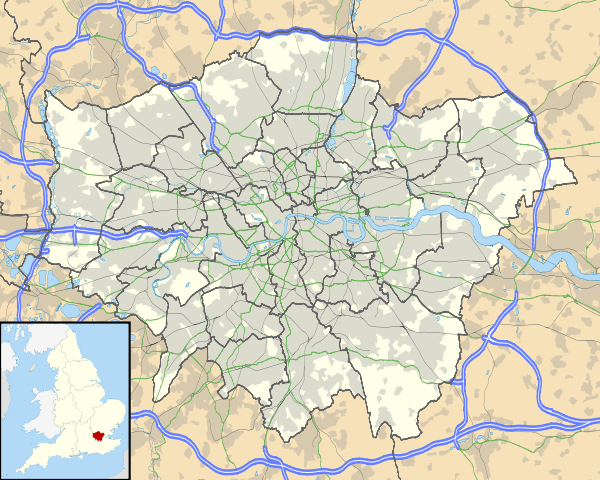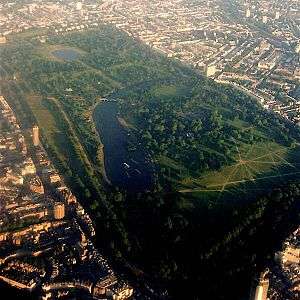Ealing Common
Coordinates: 51°30′36″N 0°17′38″W / 51.510°N 0.294°W

Ealing Common is a large open space (approx 47 acres) in Ealing, west London. It is also the name of the area surrounding Ealing Common station where Piccadilly & District line trains stop.
Boundaries
The Ealing Common Area is bounded by Ealing Town Centre to the west, North Ealing and Hanger Hill to the north, Acton to the east and South Ealing and South Acton to the south.
The Ealing Common open space is bounded by Gunnersbury Ave (A406) to the east and the Uxbridge Road to the north. A smaller area of the common extends to the east of Gunnersbury Ave, including Leopold Road. The western boundary includes The Common and Warwick Dene, with Elm Avenue to the south.
Ownership
The Ealing Common open space is a common land as designated by the 1866 Metropolitan Commons Act.
History
On Monday, 20 August 1733, a cricket match with important status was played on the common between Ealing & Acton and London. The result is unknown but the terms of the match were "for £50, play or pay", a substantial prize. London was the sport's premier club at the time. This is the only mention of Ealing & Acton and of Ealing Common in the surviving records of early cricket. The strength of the Ealing & Acton team cannot now be determined but the stake was high and the match was reported in a newspaper, Berington's Evening Post.[1]
Flora
Ealing Common preserves a large area of open space with fine avenues of horse chestnut trees, most of which were planted in the late Victorian period, following the purchase of the common land by the Ealing Local Board. The northern part of the common has a large English oak tree at its centre, and London plane trees are also found with the horse chestnuts around the perimeter of the common. Charles Jones was the borough surveyor responsible for the layout.
In the south-west corner of Ealing Common there is a small enclosed park, called Warwick Dene, with rose beds at its centre.
Other information
There is a local Conservation Area which includes streets around the common.
Ealing Common is also the name of the area in the London Borough of Ealing surrounding Ealing Common station, which is named after the common; however, it is officially part of the Ealing district.
References
- ↑ Buckley, p. 8.
Bibliography
- Buckley, G. B. (1935). Fresh Light on 18th Century Cricket. Cotterell.
Ealing Common Conservation area Appraisal on Ealing Council Website.


